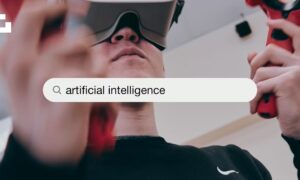Welcome to the quantum revolution! Buckle up and get ready to dive headfirst into the mind-bending world of quantum technologies. In this era of rapid scientific advancements, where reality seems to blur with science fiction, one field stands out above all others: quantum physics. The implications are immense, and the opportunities are boundless; it’s no wonder that experts are hailing it as nothing short of a technological game-changer. From computing power that can crack previously unsolvable problems in seconds to unbreakable encryption that will safeguard our digital lives, quantum technologies are reshaping our future in ways we never thought possible. Get ready to explore this fascinating frontier as we unravel the mysteries behind the quantum revolution and discover how it is set to reshape every aspect of our lives.
Introduction to Quantum Mechanics
Quantum mechanics is the branch of physics that studies the behavior of matter and energy in the presence of an observer. It is the foundation of modern physics and the theory of wave-particle duality.
Quantum mechanics was developed in the early 1900s by a number of physicists, including Max Planck, Albert Einstein, Niels Bohr, and Erwin Schrödinger. The theory has been enormously successful in explaining the behavior of subatomic particles, atoms, and molecules.
In recent years, quantum mechanics has been used to develop new technologies such as quantum computers and quantum encryption. These technologies are reshaping our future in ways that we are only beginning to imagine.
How Quantum Technologies are Reshaping Our Future
As we enter the quantum age, technologies that once seemed like science fiction are quickly becoming reality. From quantum computers that can solve complex problems in seconds to ultra-secure communications that are virtually impossible to hack, quantum technologies are poised to revolutionize the world as we know it.
But what exactly is quantum technology? And how will it reshape our future?
Quantum technology harnesses the strange and counterintuitive phenomena of quantum mechanics to perform tasks that are impossible for classical technologies to match. By harnessing the power of quantum particles, we can create devices with unprecedented capabilities.
One of the most promising applications of quantum technology is in computing. Quantum computers are capable of performing certain types of calculations much faster than classical computers. This could have a transformative effect on fields like drug discovery and financial analysis, where complex problems need to be solved quickly.
Similarly, quantum encryption could make data storage and communication completely secure from hackers. Because quantum information is so fragile, any attempt to eavesdrop on a quantum communication would cause the signal to collapse, alerting the sender and receiver that their data was compromised.
These are just a few examples of how quantum technologies are reshaping our future. As research in this field progresses, we are likely to see even more amazing applications of quantum physics in the years to come.
Applications of Quantum Computing
Quantum computing is set to revolutionize a number of industries, with early applications already being developed in areas such as drug discovery, financial services, and logistics.
In the area of drug discovery, quantum computers can be used to screen large databases of molecules for potential therapeutic activity. This is a huge task for classical computers, which would have to evaluate each molecule individually. Quantum computers, on the other hand, can perform many evaluations simultaneously, drastically reducing the time and cost of drug development.
In finance, quantum computers can be used to develop new investment strategies and identify market trends. They can also be used to crack complex financial problems that are currently unsolvable by classical computers. For example, a team of researchers from IBM recently used a quantum computer to successfully solve a complex portfolio optimization problem.
Logistics is another area where quantum computing could have a big impact. Quantum computers can be used to develop more efficient algorithms for routing packages and optimizing transportation networks. They can also be used to plan supply chains and manage inventory levels more effectively.
Potential impact on society and industries
As quantum technologies become more advanced and widespread, they are likely to have a profound impact on society and industries. Quantum computers could revolutionize fields such as finance, healthcare, and logistics, while quantum sensors could transform transportation and communication.
Quantum computers will be able to solve problems that are currently intractable for classical computers. This could lead to breakthroughs in areas such as drug discovery, financial modeling, and climate modeling. Quantum computers will also enable new types of secure communication and networking protocols.
Quantum sensors will allow us to measure things with unprecedented accuracy and precision. This could lead to major advances in fields such as navigation, communications, and medicine. Quantum sensors could also be used to detect previously invisible environmental hazards and monitor the health of critical infrastructure.
The Challenges of Implementing Quantum Technologies
Quantum technologies hold great promise for improving our lives and the way we do business. However, there are significant challenges in terms of developing and implementing these technologies.
One challenge is the cost of quantum computers. They are currently very expensive to develop and produce, which limits their use to only the most well-funded organizations. Another challenge is that quantum computers require highly specialized skills to operate, which means that there is a limited pool of people who can work with them.
Another significant challenge is that quantum computers are very sensitive to their environment, which makes them difficult to use in real-world settings. This means that they must be carefully isolated from any outside interference, which can add significantly to the cost of using them.
Quantum computers are still in their early stages of development, which means that they are not yet as powerful as classical computers. This may change over time, but for now, it means that quantum technologies are not yet ready to replace classical systems entirely.
Conclusion
The quantum revolution promises to have an immense and far-reaching impact on the world we live in. From faster, more efficient computers to improved medical diagnostics and treatments, quantum technologies will reshape how we interact with our environment in unprecedented ways. As these technologies continue to evolve, it is important for us to remain informed of their potential so that we can prepare ourselves for the changes they may bring about. With this knowledge, we can take full advantage of the opportunities that the quantum revolution has opened up for us and ensure a bright future ahead.



































